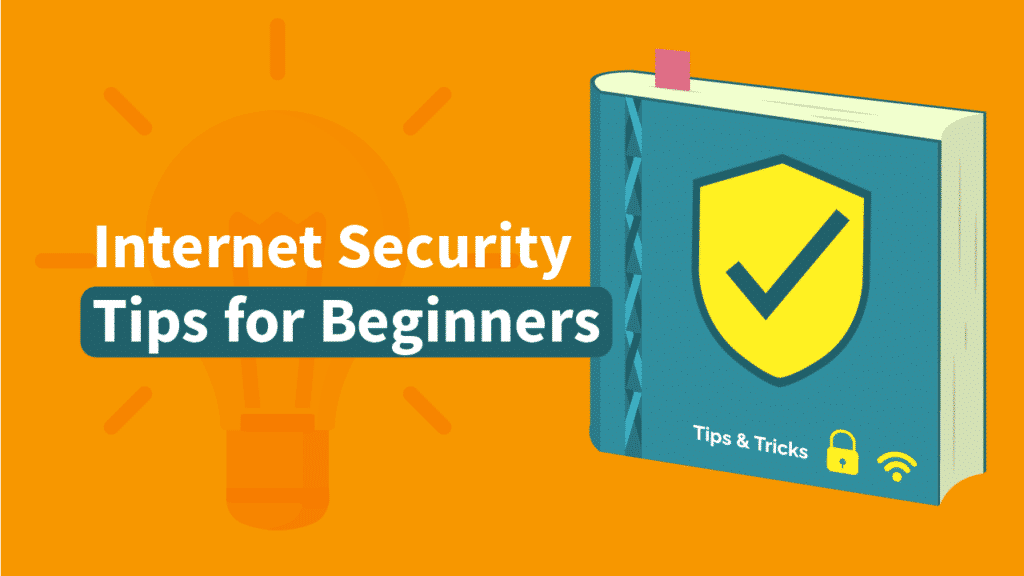Internet Security Tips for Beginners
Using the internet can be an exciting experience as there are many features and things to do. However, things can quickly go south if you do not take measures to protect your privacy and security, no matter how long you have been an internet user. Data breaches, identity theft, and ransomware attacks are a few things that can happen if you do not pay enough attention to security when using the internet. If you’re new to keeping your internet activities secure, here are some helpful internet security tips you can start with.
1. Use Strong Passwords
On the internet, you’d likely have to open different accounts, each with its unique password. Due to this, people often use simple passwords they can remember, such as last names, birthdays, or significant dates. At times, they use the same password on multiple accounts and devices. While this may sound convenient, it will also become convenient for cybercriminals, hackers, and identity thieves to hack your accounts and steal your data. This is why using easy passwords or the same password on multiple accounts is a bad idea.
For your social media accounts, email, and other critical accounts, ensure you use a strong password with a combination of letters, numbers, and special characters. You can also go for the best option, which is to use a password manager.
A password manager will suggest complex and unique passwords that you can use for various accounts. The password manager also stores the passwords securely so you can access them anytime. Also, it is essential to set up two-factor authentication on your accounts and device. Two-factor authentication provides an extra layer of security apart from the password.
2. Disregard Suspicious Emails
You will receive a lot of suspicious emails filled with different offers, attachments, or links. These may come from the websites you browse or from hackers. Most of these emails will be filtered by the service provider and sent to the spam box. However, a few of them may still make it to your primary inbox.
If you receive such emails from unknown senders, ensure you do not open the attachments or links that come with the message. No matter how much the offer sounds good, ensure you delete the email as it is usually a ploy by hackers to hack your device or compromise your account.
Also, if you receive suspicious messages from a friend on your contact list, it may be that their account has been compromised. Usually, the sender asks for money or sends a link. If this happens, contact the friend through another means to let them know their account has been compromised.
3. Limit How You Share Personal Information
It’s easy to get carried away while using the internet, especially when using social media. Putting too much private or sensitive information online can put you at risk of identity theft or data breaches. Hackers and cybercriminals have various tools to gather bits of confidential information to access their victim’s accounts. To keep yourself from falling victim to this, ensure you keep your private information limited on the internet.
4. Avoid Unsecure Websites
When browsing the internet, it is essential to pay attention to the websites you visit. Websites with https in the address bar are secure, as opposed to the http counterpart. Https means the connection between you and the website is secure and cannot be intercepted. You should look out for this, especially when making online purchases or performing sensitive transactions. Hackers often try to lure people to websites infected with malware and dubious content. Ensure you keep away from those websites.
5. Update Your Apps and Operating System
Operating systems such as Windows, Mac, and Android all push important updates to devices regularly. It is necessary to download these updates as they contain essential security patches and bug fixes. To protect your device from the latest security vulnerabilities, you can turn on automatic updates. Also, ensure you update your browser apps and other key apps regularly to keep your device safe.
6. Avoid Unsecure Networks
Public networks such as those in cafes and restaurants are risky as they are not encrypted. When you connect to these networks without protection, your device is visible on the network and can be accessed by hackers. If you need to use a public network, ensure you have a strong firewall, and you do not perform important transactions while on the network.
Conclusion
With the rise of cybercrimes in this internet age, it is necessary to always keep the security tips we have discussed above in mind to save yourself from a lot of trouble. Also, ensure you stay up to date with the latest security threats on the internet and how you can avoid them. With this, you’ll have a smooth experience using the internet.
